I’ll Let Myself In by Hannah Diviney
Sophie Groom, CEO
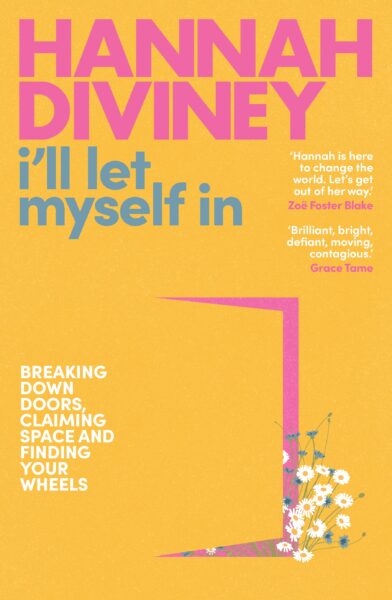
Stone Yard Devotional by Charlotte Wood
Rowena Tuziak, Program Manager
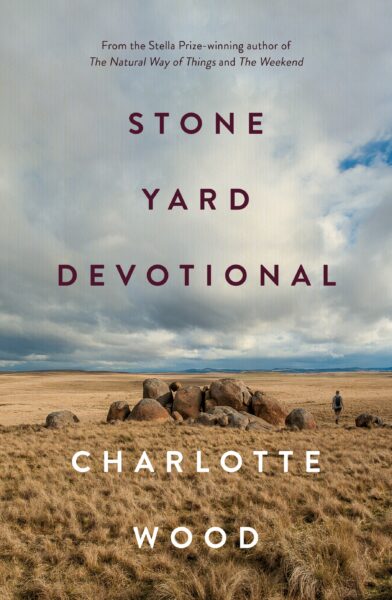
Contemplative, and at times uncomfortable, Charlotte Wood’s latest work, Stone Yard Devotional grapples with what it means to be good. Exiling herself from her own life, Wood’s unnamed protagonist returns to the area of her childhood in the Monaro region, holing up in a convent as a secular guest. Here she revisits her past, her grief and her guilt.
This book will stay with you. Wood has intentionally slowed the pace of this work and made space for the reader to reflect on its weighty subject matter as the protagonist moves through her memories. With pared-back prose and a clear sense of place, all while addressing key aspects of the human condition, Wood demonstrates the skill we’ve come to expect from her writing. I can see why so many people are talking about this novel.
Soak, UTS Writers’ Anthology
Elliot Cameron, Membership & Operations Coordinator
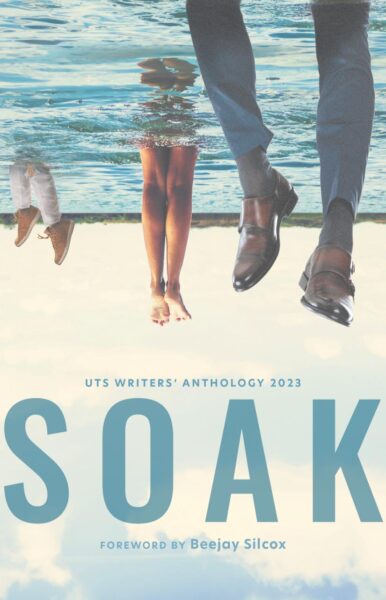
I attended the launch panel of Soak last week at the State Library of NSW, wonderfully moderated by our very own Rochelle Pickles, who is both an editor as well as one of the contributing writers for this anthology. I am yet to read all of the pieces therein, but what I have read thus far represents a varied and exciting range of voices, styles and forms.
Of what I have read, I was particularly taken by ‘al Oum’, a creative non-fiction piece by Rafqa Touma, chronicling four generations of Lebanese diaspora to Australia. This non-linear story so effectively humanises the intergenerational weight the women in such a family are asked to carry, alongside the men who often fall short in doing their part. Touma vividly paints a borderline magic-realism portrait of her great-grandmother’s upbringing in Lebanon, deftly contrasted with everyday depictions of personal conversations with her mother and grandmother longing to honour and understand this past.
‘Alphard’ by Yasmine Alwakal is another creative non-fiction piece that left a strong impression on me. An introspective exploration of her Palestinian ancestry, and what it means to be from ‘a land without people and a people without land’, Alwakal does not shy away from speaking about the horrors her family faced during the Nakba. The struggles of repeated forced migration across generations—to Gaza, to Lebanon, and then to Australia—echo many of the themes found in ‘al Oum’. Choosing to read these two back-to-back, as I did, spoke to a larger theme of Arab-Australian diaspora that feels especially pertinent at this time.
On the other end of Soak’s creative spectrum, the opening piece is a satirical short story titled ‘Very Jerry’ by David Saunders. Set in a not-so-unbelievable future of a society overrun by rising sea levels and corporate greed, Saunders writes with a wit and cynicism befitting such fatalistic humour. I’m looking forward to digging into the rest of these works, including more of the short stories and poetry, and discovering what other unique voices Soak has in store.
Soak, UTS Writers’ Anthology (2023, Brio Books)
Every Version of You by Grace Chan
Rochelle Pickles, Professional Development Officer
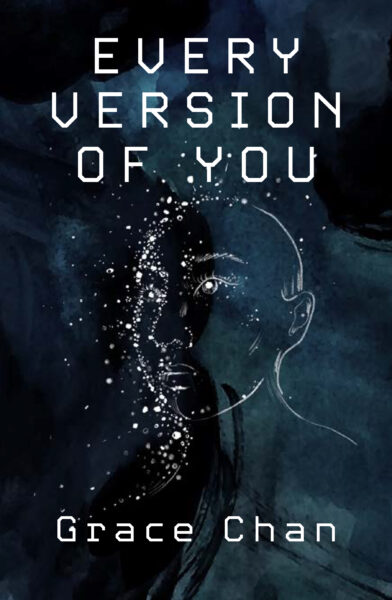
I’m currently in the middle of reading Grace Chan’s debut cli-fi novel, Every Version of You, and I love it so far!
Set in Melbourne in the future 2080s, Chan has created a scarily-realistic world in which humans must suit-up to spend any time outside, donning reflective full-body covering to protect them from the heat and sun, and air filters to breathe. Indoors, everything is pristine and regularly cleaned by homemaker droids. Entry into a virtual world, Gaia, is common—as a place of respite, entertainment, and socialising.
We’re introduced to this future world through the perspective Tao-Yi, who lives with her partner Navin in the inner city while looking out for her unwell mother in the outer suburbs. Tao-Yi is uncertain about time spent in Gaia—never quite replicating the experience of living in the real world—while Navin, suffering from chronic illness and pain that makes it difficult for him to enjoy life to the same capacity in the real world, spends an increasing amount of his time there. When news breaks that new technology will allow humans to permanently upload their minds to live in Gaia indefinitely, Tao-Yi has to make the difficult decision about whether to stay or leave.
A beautifully written story about the aftermath of human consumption, the power of relationships and the hard choices of migration.
Every Version of You (2022, Affirm Press)
‘Home’ by Melanie Saward in Meanjin 82.3
Adara Enthaler, Project & Communications Officer
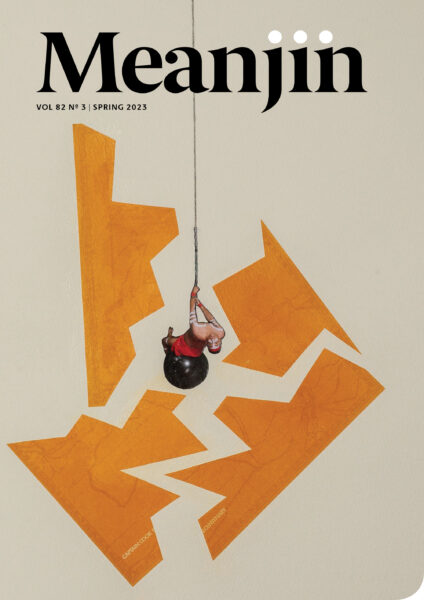
Melanie Saward’s short story ‘Home’ in the latest edition of Meanjin is a touching narrative of the disconnection from home, Country and family, and the specific feeling of being in limbo, between states of being and of place, when searching for the best version of yourself.
Cassie is home for Christmas in Brisbane, back from Vancouver where she works in a bookshop on a working visa and feels like a novelty as an Australian in Canada, but has been feeling her identity as a Murri woman slipping away. Her brother comments that she’s too pasty for a Blakfulla, and she keeps finding herself compared by her relatives to the mother that all but abandoned them as children for a life on the move.
Cassie bakes in the heat of an Australian Christmas, waiting for the mail to find out if her visa extension was approved, and debating whether she should go back at all. For any young people on this land thinking about who and where they want to be as we approach the end of the year, ‘Home’ is an eminently relatable moment in time.
How Many More Women? by Jennifer Robinson and Keina Yoshida
Nevenya Cameron, Administration Officer
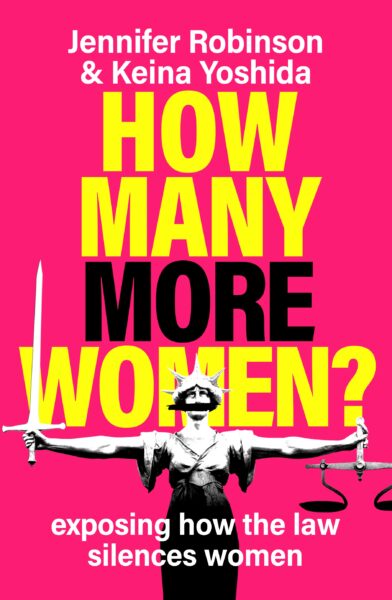
How Many More Women is a brilliant non-fiction exposé on how the legal system contributes to a culture of silence which upholds the inherent patriarchal power structures of our society. Written by two eminent human rights lawyers, the book exposes the technical aspects of the law in Australia, the UK and the United States that condemn sexual assault survivors to silence and protect the reputations of the rich and powerful.
Co-author Jennifer Robinson grew up in regional New South Wales, became a Rhodes Scholar at Oxford University, and currently works at Doughty Street Chambers in London. She has represented clients in the most significant international human rights cases of recent years. Dr Keina Yoshida is a human rights barrister, representing women’s rights, environmental rights and LGBTQ+ rights in high-profile cases across the globe. The book draws on both lawyers’ expertise and covers survivors’ stories from Australia, Asia, South America and the United States.
Written in plain English, How Many More Women is for anyone interested in power dynamics in society. It offers the reader an understanding of how non-disclosure agreements and defamation cases are used as the legal tools for perpetrators of abuse to keep victims in ‘silos of silence’. Drawing on damning anecdotes from survivors who have been sued for defamation for speaking out, the book is an eye-opening examination of how the powerful remain powerful. It serves as an important and confronting confirmation of the necessity of the #MeToo movement to dismantle the culture of silence that keeps women in danger of abuse.
How Many More Women? Exposing how the law silences women (2022, Allen & Unwin)
More from Writing NSW
Check out our full range of in-person writing courses in Sydney, our online writing courses and our feedback programs to see how we can help you on your writing journey. Find out about our grants and prizes, as well as writing groups across NSW, and sign up to our weekly newsletter for writing events, opportunities and giveaways.
